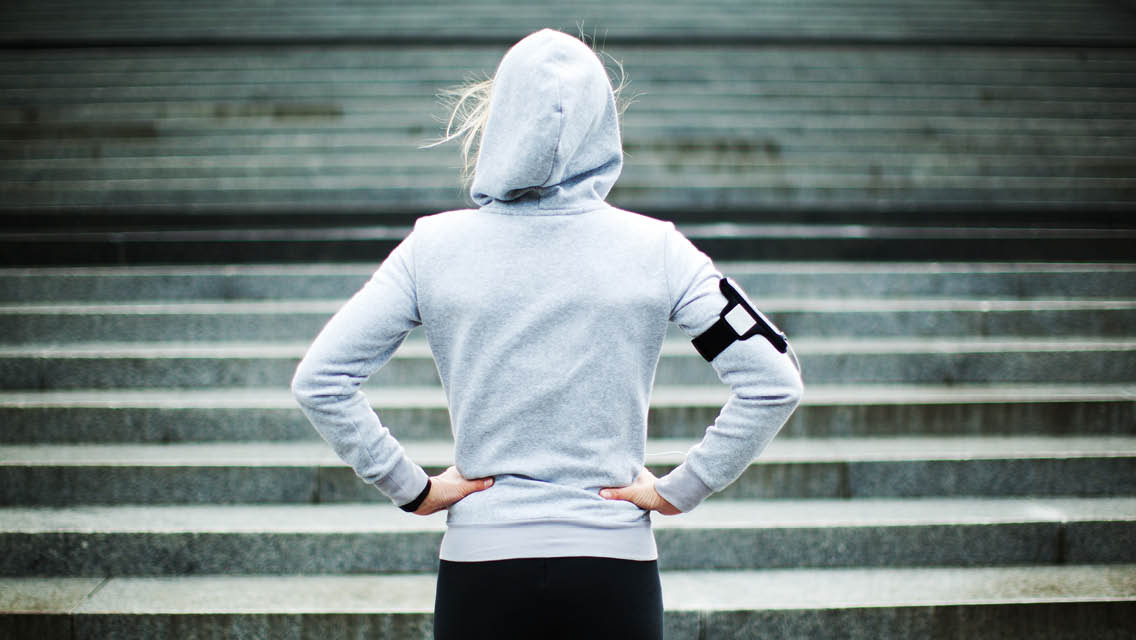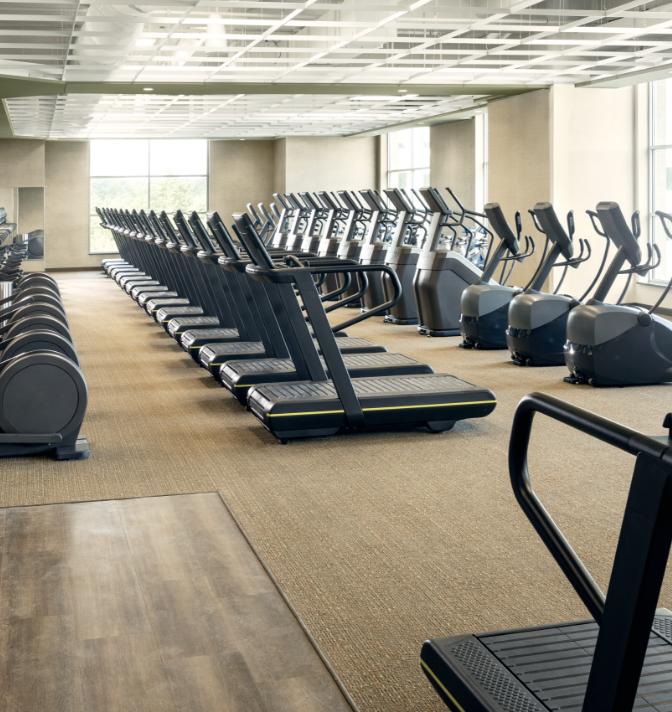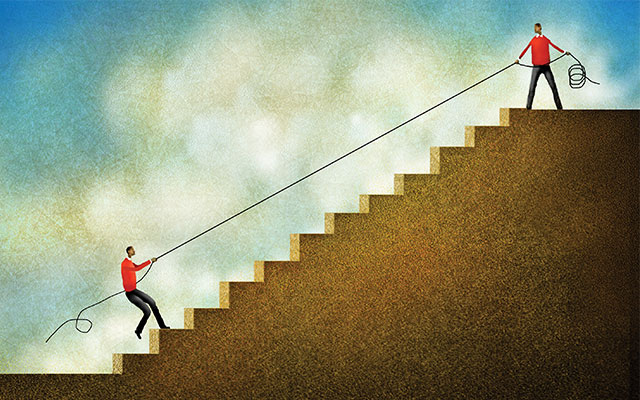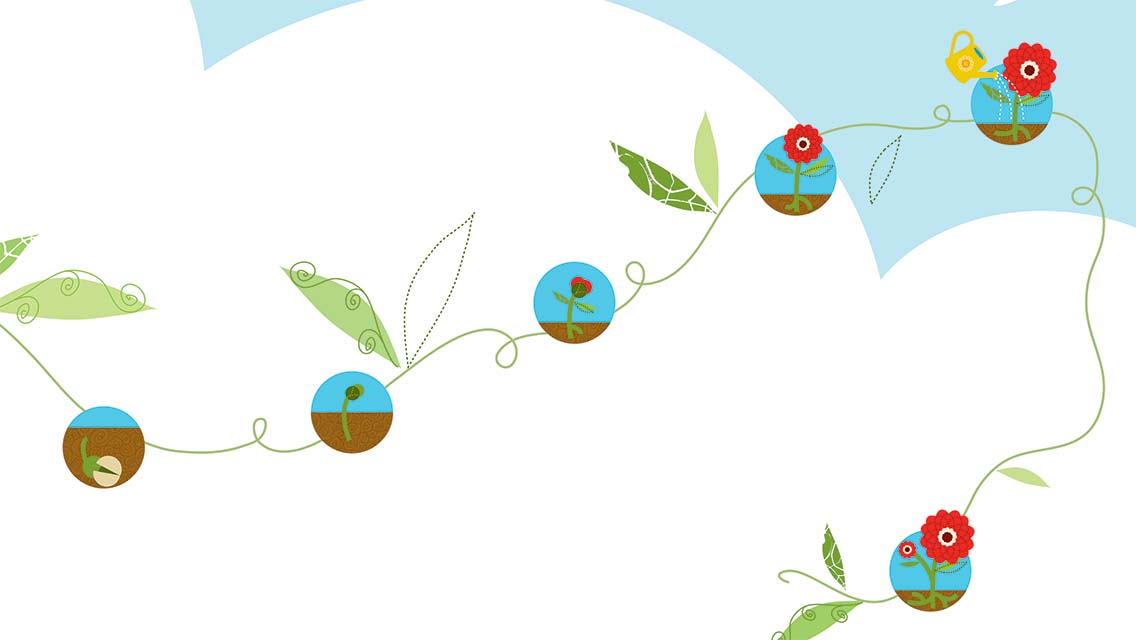When it comes to how our bodies look, feel, and perform, few phrases are as loaded with emotion as “I used to . . .”
Perhaps your “I used to” involves a sport you excelled at in high school or college. Maybe it’s an old 5K or marathon personal record, or a lifting PR. Or maybe it revolves around an aesthetic, such as being lean, having great posture, or having thick legs.
There is a nostalgic element to all this — “I used to, and now I don’t (or can’t).” We may conjure up pride and self-esteem when reflecting on past accomplishments.
At the same time, comparing our current selves with our past selves can have a profound negative effect on self-worth and make it difficult to feel motivated to honor the bodies we have now.
“Being in a chronic state of self-judgment can have both an acute and chronic impact on your mental and physical health,” says Jen Elmquist, MA, LMFT, a mental-wellness expert and the director of Life Time Mind.
There are countless reasons someone might not be fit in the same way they were two decades ago, or even one year ago. Common life changes that can disrupt our habits and affect our bodies in ways we didn’t intend include transitioning from school to work; a new job that calls for long hours behind a desk or steering wheel; pregnancy; menopause or other hormonal changes related to growing older; injury or illness; and even starting a new sport or activity that challenges the body in a different way.
“Things in life will take away from who we are and help us turn into who we are becoming,” says Brianna Battles, MS, CSCS, and founder of Pregnancy and Postpartum Athleticism. Some chapters of our lives tend to relay this message more intensely than others.
Recently, the collective trauma of COVID-19, and the physical- and mental-health implications of surviving a global pandemic, resulted in sometimes significant unwanted changes to people’s bodies and fitness levels. According to a Harris Poll conducted for the American Psychological Association in February 2021, 42 percent of U.S. adults report experiencing unwanted weight gain during the pandemic, and 18 percent report unwanted weight loss.
While weight isn’t the only (or even the best) marker of fitness, the fact that so many people experienced unintended and undesirable changes to their bodies is notable. A quick scroll through social media provides anecdotal support for the idea that people want to return to their prepandemic fitness levels.
You might be wondering: What’s so wrong with finding motivation in the past?
Nothing, experts say — as long as you’re truly seeking out motivation and not succumbing to self-flagellation. It is possible to integrate past experiences and our past selves without getting caught in a comparison trap. We can use the wisdom of past successes and failures to move forward, with the present moment as our starting point.
“A lot of folks say, ‘That’s what I was; that’s what I want to be again,’” says Frankie Ruiz, a distance-running coach based in Miami and cofounder of the Life Time Miami Marathon. “My advice is to forget where you once were, be it at the height of your fitness, before your break, or possibly as your younger self. Assume you are starting from zero. You can honor your past, but you don’t have to let it define your future.”
The only way to move forward is to start where you are, agrees Elmquist. That includes understanding where you’ve been, but not necessarily striving to get back there.
“Looking at the physicality of your body through time, it can feel like a roller coaster,” she says. “We can find a lot of wisdom in a mindset of self-compassion. We’re evolving creatures. We’re always moving forward.”
Use Your Experiences to Find Confidence in Your Future
Confidence isn’t just one thing. It’s a cumulative effect of many things — only one of which is what you’ve been able to accomplish in the past, says Ruiz. If you’re an athlete who is returning to your sport after a break, you may feel intimidated. But you can find confidence in this process by recalling other times when you had to start again.
“You can tell yourself, ‘I’ve been here before. I’ve started up again after a setback and it turned out OK. I know I can do it again,’” explains Ruiz.
Instead of thinking about returning to where you were, think about what you want to achieve this time, and set small goals, Battles adds. “You don’t need to see the end goal to think, What’s the next right thing that will help me prioritize what I’m working toward?”
Separate Your Sport From Its Values
If you are unable to perform an activity at the same level as you used to — or even at all — it can be hard to cope with this loss. “There’s an identity piece wrapped up in the sports we play or how we move. It’s important to take time to sit with this,” says Elmquist.
“For example, if you used to be a runner, what is the part of your identity for which running makes you feel whole? Is it the high you get? The feeling of health? Being part of a community? If we can get to the values of why we do something, we realize it’s the values that we want to continue to take with us.”
Maybe you can continue to find these values in the same sport at a different level, or maybe you need a different activity — or activities. If you find another that checks all the boxes, remember: You’re not trying to replicate the same experience.
“You can’t expect to get the exact same thing out of one sport or activity that you got out of another,” says Ruiz. “Adjusting your expectations will help you keep the door open to new experiences.”
Grow From a Place of Acceptance
“There’s always going to be internal reconciliation with change,” says Elmquist. It’s important to remember that life may be different and your body may be different — but neither is necessarily worse.
We are socialized to process narratives as good or bad, journeys as taking us someplace better or worse. But those are oversimplified versions of the truth. You can accept the present for what it is and still grow.
Elmquist recommends framing your acceptance with gratitude: “You can tell yourself, ‘That was that season. I honor that season. I feel proud of that part of my life. Now I’m in a new season. I’m going to find new things to be proud of.’ Or simply, ‘I’m so glad I have the chance to be in this body and move in this way.’”
This article originally appeared as “The Past and Future You” in the December 2021 issue of Experience Life.






This Post Has 2 Comments
Thank you, I needed this article!
Perfect article. Perfect timing for me. I do remember sports accomplishments and working out 4 days a week at Lifetime. Now I’m almost 73 and can’t stand to look in the mirror.
I’m going to forget about all I used to do and start walking today. A small step but a start.
Thanks for the gentle push!
Happy New Year!